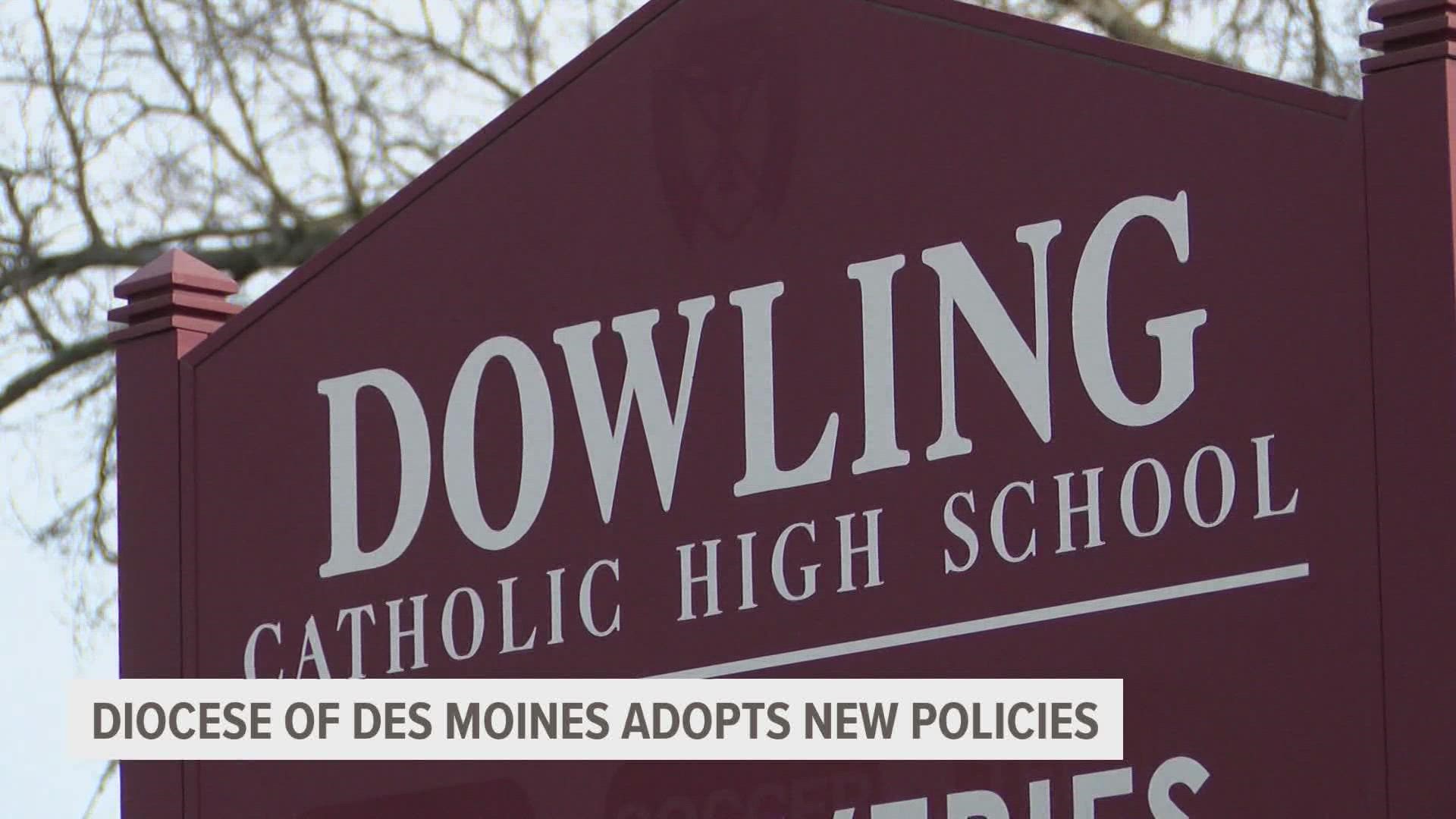DES MOINES, Iowa — The Diocese of Des Moines has seven new policies in place regarding how its dealing with gender identity in its schools and churches, beginning Jan. 16, 2023.
"It came to a certain point where those who had approached us seeking some guidance in this area... we had an obligation to them to respond and to offer and deliver what they were seeking," said Bishop William Joensen.
The official policy document outlines these new rules and how the organization ultimately identified the changes.
It states those in its churches and schools will not be allowed to use preferred pronouns.
Additionally, people can only use bathrooms and locker rooms in accordance with their biological sex.
Students participating in sports and other extracurriculars will be required to participate on teams matching their sex at birth.
If a dress code or uniform exists, students must follow it according to their biological sex.
Any type of medication which aids in gender reassignment, will not be allowed in schools.
Finally, the diocese says those who may be questioning their gender should be guided to ministers and counselors within the church.
Opponents of the new policies believe all of these policies will harm students and members of the church.
"That sounds like conversion therapy to me," said Keenan Crow, director of policy and advocacy for One Iowa. "Which we know for a fact is not only cannot deliver the results that it promises, but in fact is, you know, a dangerous discredited practice that every major American Medical Association has come out swinging against."
Members of the Diocese of Des Moines say these policies are not intended to hurt students or members of the church.
"It was not in any way intended to be exclusive," Joensen told Local 5. "I know there are some perceptions out there. But this is really [about], how do we build our community in accord with what Jesus has revealed to us in His love? And how are we to be sisters and brothers to each other."
Crow, however, feels these policies state the exact opposite.
"There was one part that said transgender individuals should not suffer any unnecessary discrimination," Crow said. "And then there was a whole list of ways they were going to discriminate against this one. So I guess they thought it was necessary discrimination."
Crow acknowledges the diocese has every right to set its own policies and practices. However, they feel this rhetoric is harmful, especially for young people, and deserves to be spoken out against.
"The most dangerous thing for an LGBTQ person is lack of acceptance from their family," said Crow. "And so if an institution is able to convince their family members that this is the way that they should be treated, that absolutely skyrockets, that the adverse mental health outcomes, the suicide risk."
A full list of FAQs surrounding this new policy can be found here.

